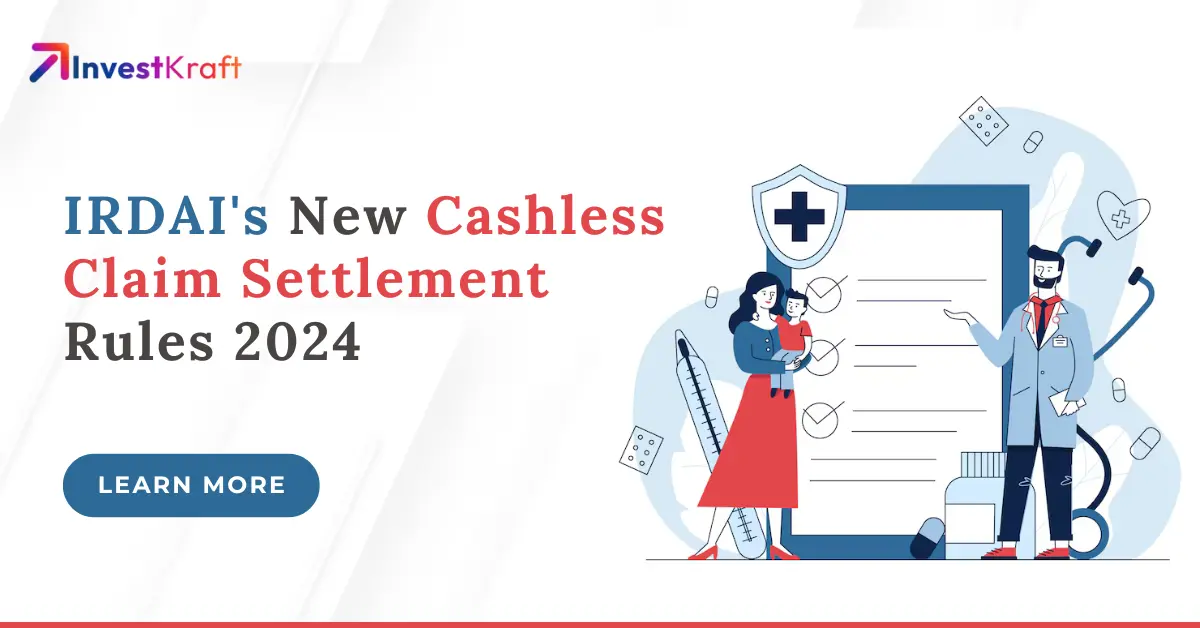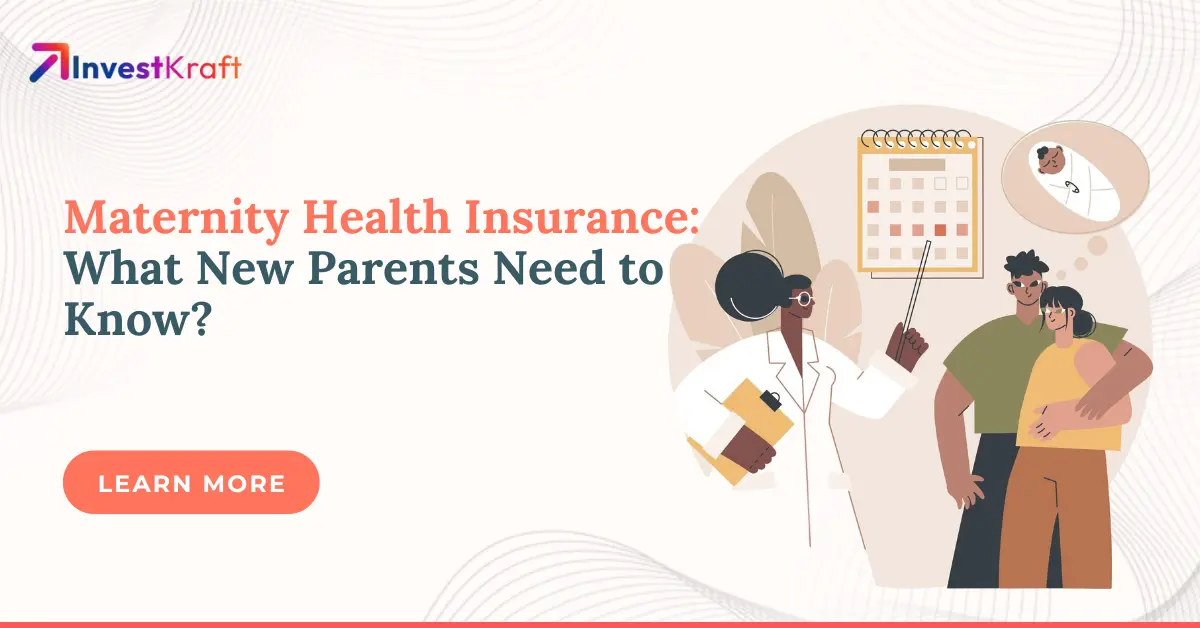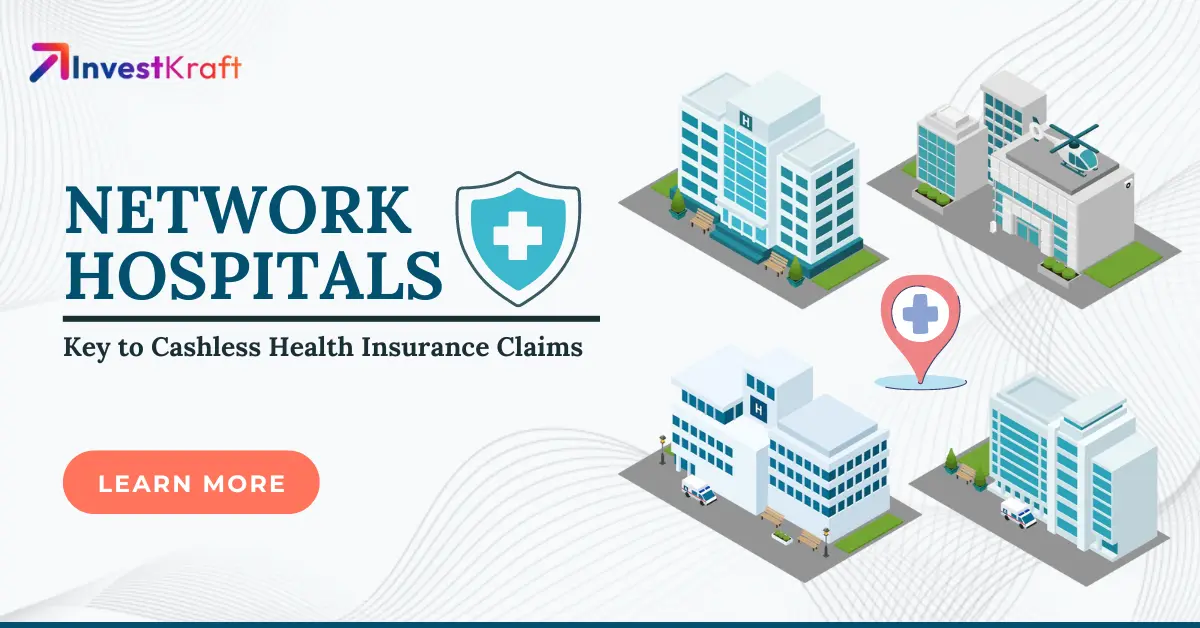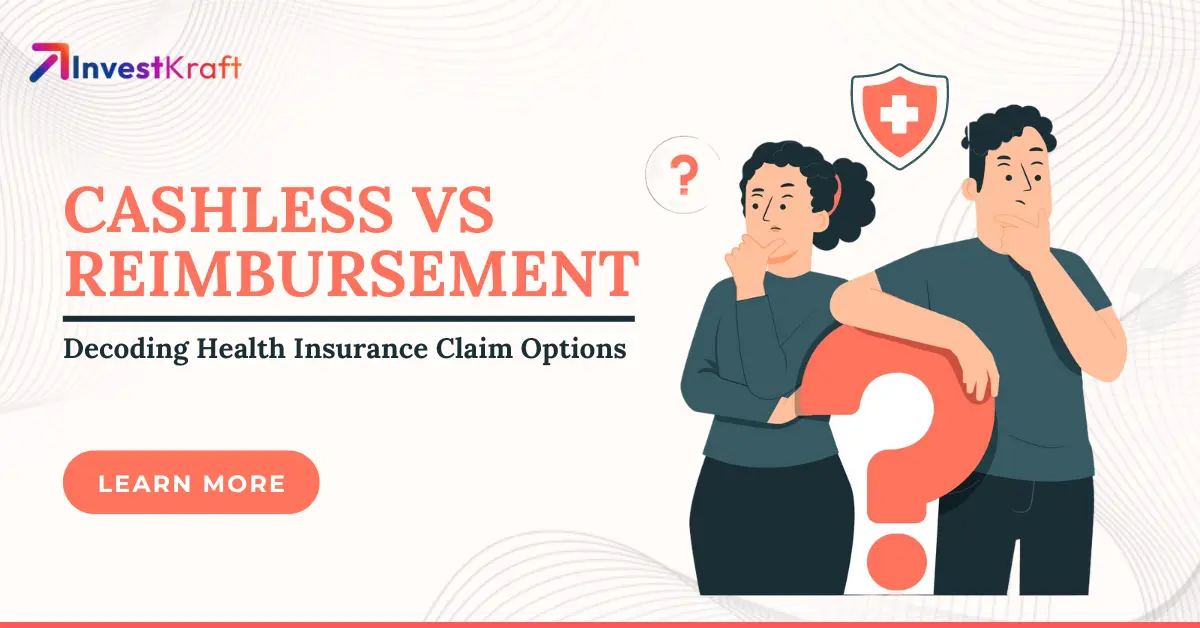What are IRDAI's New Rules for Cashless Health Insurance?

Cashless claim settlements are an important part of health insurance today, benefiting policyholders and the industry. The regulatory authority, IRDAI, has issued new guidelines for health insurance providers to promptly authorize cashless claims within one hour of receiving the request. Additionally, IRDAI has set a 3-hour limit to process these claims, reducing the customer experience during medical emergencies.
Let us understand in detail the new rules set by IRDAI. We will also closely examine the benefits of these rules and how you can take advantage of them.
Why Did IRDAI Lay Down the New Rules?
Delayed health insurance claim settlements became a nightmare for patients and their families. In some cases, it took as long as 10 to 12 hours after the patient was ready for discharge for them to be discharged due to the ongoing processing of the insurance claim. This resulted in additional costs for patients if they had to stay an extra night at the hospital. Even when the insurance company gave pre-approval to the hospital’s TPA desk before admission, patients often faced these issues.
What are IRDAI's New Cashless Claim Settlement Rules?
- IRDAI’s latest circular on cashless claim settlement rules aims to centralize policyholder entitlement information for easy access. It also outlines steps to enhance the claims process and improve overall service standards in the health insurance industry. Let us discuss the new rules in detail.
- The Insurance Regulatory and Development Authority of India (IRDAI) has made it mandatory for insurers to provide the final authorization within 3 hours of receiving a discharge request from a hospital. This move aims to ensure timely approval for patients and avoid any unnecessary delays in the discharge process, thereby providing relief to policyholders and their families. In case of the policyholder’s death during treatment, the insurer will -
- Expedite the processing of the claim settlement request.
- Arrange for the immediate release of the deceased's body from the hospital.
- The regulator has urged insurers to aim for 100% cashless claim settlement within a specific timeline. In urgent situations, insurers should decide on cashless authorization requests within one hour. By July 31, 2024, insurers must establish the appropriate procedures to accomplish this objective. Insurers may also set up dedicated help desks at hospitals to assist with cashless requests.
- Additionally, the regulator mandates insurers to offer a digital pre-authorization process to policyholders. Pre-authorization entails the insurer approving an initial amount for treatment, with the understanding that the claim will be paid upon receipt of the final invoice from the hospital.
- The regulator ensures that health insurance claims will only be rejected if approved by either the PMC or the Claims Review Committee. If a claim is rejected or partially denied, the claimant will receive a detailed explanation, including specific reference to the policy’s terms and conditions.
- IRDAI emphasized the importance of offering a wide selection of insurance products that cater to different age groups, geographical areas,m occupations, medical needs and healthcare facilities. This approach aims to enable customers to find and select a scheme that suits their financial capabilities.
- The policyholder has the flexibility to file for claim settlement under any policy as per their preference. According to the regulator, the insurer of the chosen policy will be considered the primary insurer.
- The regulator has stated that policyholders with multiple health insurance policies can select one policy to use for settling claims. The primary insurer is responsible for coordinating and facilitating the settlement of any remaining balance with the other insurers. This information was mentioned in the master circular.
- Policyholders who do not make any claims during the policy period are eligible for a no-claim bonus. This bonus can be in the form of an increased sum insured or a discounted premium amount. It serves as a reward from the insurer to the policyholders for their responsible behaviour.
What are the Benefits of IRDAI's New Cashless Claim Settlement Rules?
Listed below are some important benefits for policyholders as a result of IRDAI’s new cashless claim settlement rules -
- Insurers should provide a wider range of options by offering various insurance products, add-ons and riders. These should be designed to cater to individuals of all ages, regions, occupation categories and medical conditions/treatments. Furthermore, insurers should partner with all types of hospitals and healthcare providers to ensure that the needs and affordability of policyholders and prospects are met.
- The Customer Information Sheet (CIS) is a document provided by the insurer along with each policy. This sheet gives a clear explanation of the key features of the insurance policies, such as the type of insurance, the sum insured, coverage details, exclusions, sub-limits, deductibles and waiting periods.
- Customers should have the freedom to select products, add-ons and riders based on their medical requirements and specific preferences.
- When a policyholder has multiple health insurance policies, they have the option to choose which policy to use for their claim. The primary insurer, to whom the claim is first submitted, will then coordinate with the other insurers to settle the remaining amount. This ensures that the policyholder can maximize their claim benefits across all their insurance policies.
- Insurers can offer a “No Claim Bonus” to policyholders who do not make any claims during the policy period. This bonus can be given in the form of an increased sum insured or a discount on the premium.
- If a policyholder decides to cancel their policy before the end of the policy term, they are entitled to receive a refund of the premium for the unexpired policy period. This means that they will be refunded the portion of the premium that corresponds to the remaining time on the policy. Policyholders need to be aware of this provision in case they need to cancel their policy for any reason.
- The renewal of a health insurance policy cannot be denied due to claims made in previous policy years, except in cases of fraud, non-disclosure or misinterpretation by the insured. The insurer cannot request fresh underwriting unless there is an increase in the sum insured.
What Compliances Must Insurers Follow As Per the New IRDAI Rules?
Following is the list of compliances that insurers must follow as per the latest IRDAI rules handbook for cashless health insurance -
- Strive to achieve 100% cashless claim settlement efficiently and within a specified timeframe.
- The empanelment of hospitals and health service providers should take into account the affordability of the various segments of the population to ensure adequate access to healthcare for everyone. This would involve considering the diverse needs and financial capabilities of different groups to ensure that a wide range of healthcare options are available and accessible to all. Display prominently on the insurer’s website -
- A list of hospitals and healthcare service providers that offer cashless claim settlement
- Specify that policyholders must file a claim reimbursement if they receive services from hospitals or healthcare service providers that are not empanelled
- The procedures that need to be followed for claim settlement under a cashless facility and reimbursement of claims are essential for a smooth and hassle-free experience
- Cashless authorization requests should be decided upon promptly, with a maximum time frame of one hour. Similarly, final authorization for discharge from the hospital should be granted within 3 hours of the hospital’s request.
- Mortal remains are to be promptly released from the hospital in case of death occurring during treatment.
- All claims must be reviewed by the Claims Review Committee before they can be denied. This committee is responsible for making decisions on whether or not to repudiate each claim.
- No need for policyholders to submit claim documents. Insurers and TPAs will gather documents from hospitals for settlement.
- The Insurance Information Bureau of India or IIB has introduced stricter timelines for existing insurers and acquiring insurers to act on portability requests. This move aims to ensure faster processing of portability requests and better service for policyholders. This new timeline will help streamline the portability process and provide more efficient insurance services to customers.
- If the ombudsman awards are not implemented within 30 days, the insurer is obligated to pay the policyholder 5000 rupees per day. This provision ensures that the policyholder receives timely compensation in the event of any delays in implementing the ombudsman’s decisions.
- The underwriting policy should be updated to ensure that Ayush's treatment is placed on equal footing with other treatments. Policyholders should have the option to choose the type of treatment that best meets their needs and preferences. This will help in providing comprehensive healthcare coverage that is inclusive of all types of treatments.
- The performance of TPAs needs to be closely monitored to ensure quality service. Payments should only be made to TPAs after they have fully delivered satisfactory service. There should be a provision to claw back remuneration or charges paid to TPAs based on customer feedback and any refunds should be passed on to the policyholders.
- Policyholders should be offered suitable alternative options in the event of product withdrawal. These options can include migrating to another suitable product, either an existing or modified version of the withdrawn product. Additionally, policyholders may be given a one-time option to renew their products if the renewal falls within 90 days from the date of withdrawal.
How Can I Take Advantage of IRDAI’s New Cashless Claim Settlement Rules?
To fully benefit from cashless claims, policyholders should remember these key factors -
- Know the network hospitals of your insurer for cashless claims. Get pre-authorization for a smooth cashless claim. Check if nearby hospitals are blacklisted to ensure claim coverage
- Insurers are developing the “Cashless Anywhere” process. If a customer is notified of a claim, insurance companies strive to convert the reimbursement to cashless if the hospital agrees. Claim notification enables customers to benefit from cashless claims
- Understand your insurance policy. It is important to know what it covers, including diseases, treatments and procedures, as well as any exclusions or waiting periods. This avoids surprises when making a claim
- Delays may result in extra charges, such as half-day room fees or overnight stay expenses. Policyholders should be aware of hospital charges, policy limits and communicate clearly with the insurer and hospital
- Keep important documents ready for quick processing like health insurance cards, policy details and ID
Conclusion
IRDAI’s latest cashless claim settlement rules for health insurance in India have brought about a transformative impact. With faster approvals and improved transparency, these regulations elevate industry standards and empower policyholders. By prioritizing policyholder needs and fostering transparency, these rules create a brighter future for cashless health insurance claims, offering individuals greater financial security and the ability to make informed decisions during emergencies.
Frequently Asked Questions (FAQs)
Q: What is the IRDAI's new cashless claim settlement rule?
A: The new rule implemented by the Insurance Regulatory and Development Authority of India (IRDAI) is intended to simplify and speed up the cashless claim settlement process for health insurance policies. It requires health insurance providers to decide on approving or rejecting a cashless claim within one hour of receiving the request. Furthermore, in the case of approved claims, the insurer must settle the claim amount with the network hospitals within 3 hours of the policyholder’s discharge.
Q: What happens if the insurer fails to meet the deadlines?
A: In case the health insurance provider fails to make a decision on a cashless claim within one hour or settle the claim within 3 hours after the discharge for an approved claim, they must cover the extra hospital charges resulting from the delay.
Q: How can I take advantage of this new rule?
A: To benefit from this rule, understand your health insurance policy’s terms, especially the cashless claim process. Select a network hospital covered by your insurance company when hospitalized. Start the cashless claim as soon as you are admitted and stay in touch with your insurer and the hospital for a seamless experience.
Q: Do I need to inform my insurer before hospitalization?
A: It is usually a good idea to let your insurance provider know ahead of time if you are going to be hospitalized. This will help them start the cashless claim approval process, which could make it faster when you are admitted.
Q: Where can I find more information about this new rule?
A: You can find the official notification about the new cashless claim settlement rule on the IRDAI website by checking out the link: Master Circular on Health Insurance Business. This circular contains all the details and guidelines related to the new rule, which will help you understand how it impacts your health insurance coverage. It is important to stay updated with such regulatory changes to ensure you are well informed about your policy and its benefits.
Q: What if I have any questions or concerns regarding my specific health insurance policy or a cashless claim?
A: Contact your health insurance provider’s customer service department for assistance. They will help you navigate the cashless claim process based on your policy’s terms and conditions.
Q: Are there any limitations to this new rule?
A: Note that this rule only applies to cashless claims at network hospitals. If you go to a non-network hospital, you will have to pay the bill and request reimbursement, which may take longer.

Author: Abhik Das
Abhik Das is a versatile content writer with over 5 years of experience crafting engaging and informative content across diverse industries. His expertise spans the fields of ed-tech, pharmaceuticals, organic food, travel, sports, and finance.
Here's what sets Abhik apart:
Content Versatility: Able to adapt writing style and tone to suit various audiences and content needs.
SEO Proficiency: Creates content optimized for search engines, ensuring discoverability and organic traffic.
Deep Research: Conducts thorough research to ensure content accuracy and credibility across complex topics.
Engaging Storytelling: Captures reader interest with clear, concise, and compelling writing.
Abhik's diverse background empowers him to deliver insightful content across a wide range of subjects. Whether you're seeking engaging explainer pieces on the latest financial trends, informative guides to organic food choices, or captivating travelogues, Abhik has the expertise to craft content that resonates with your audience.





















